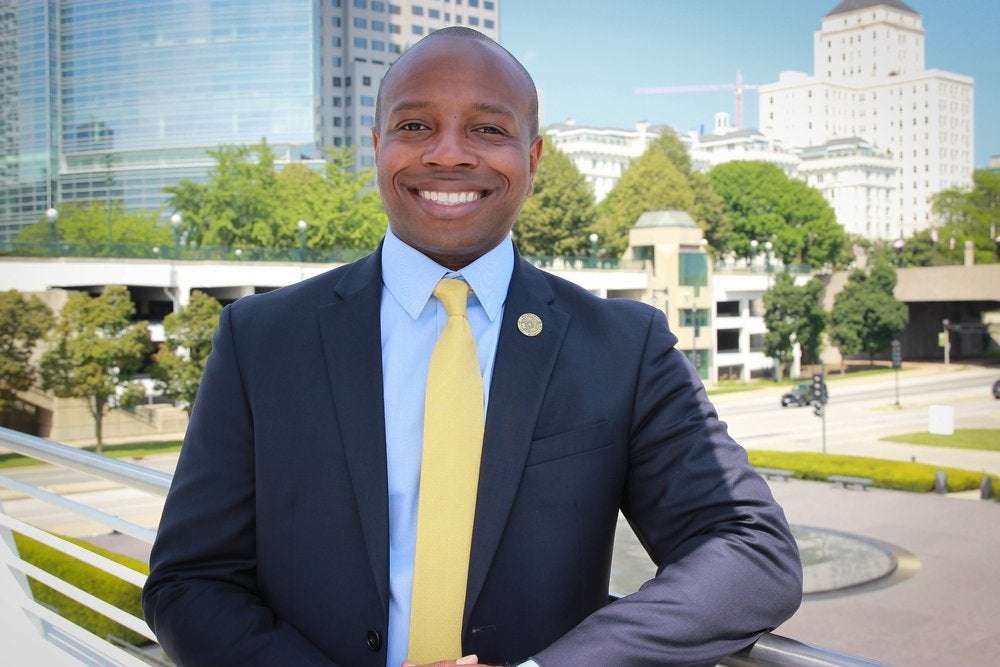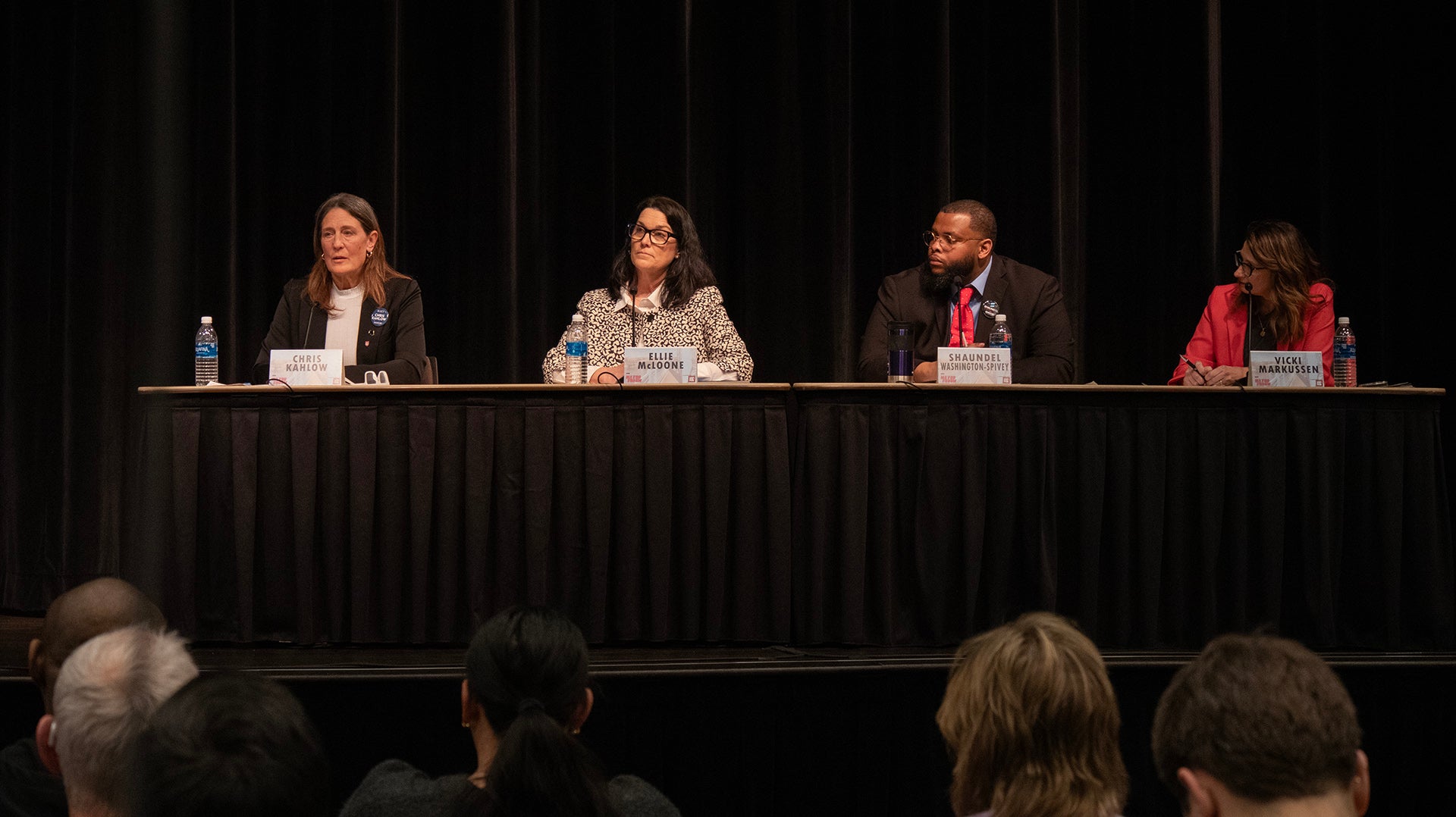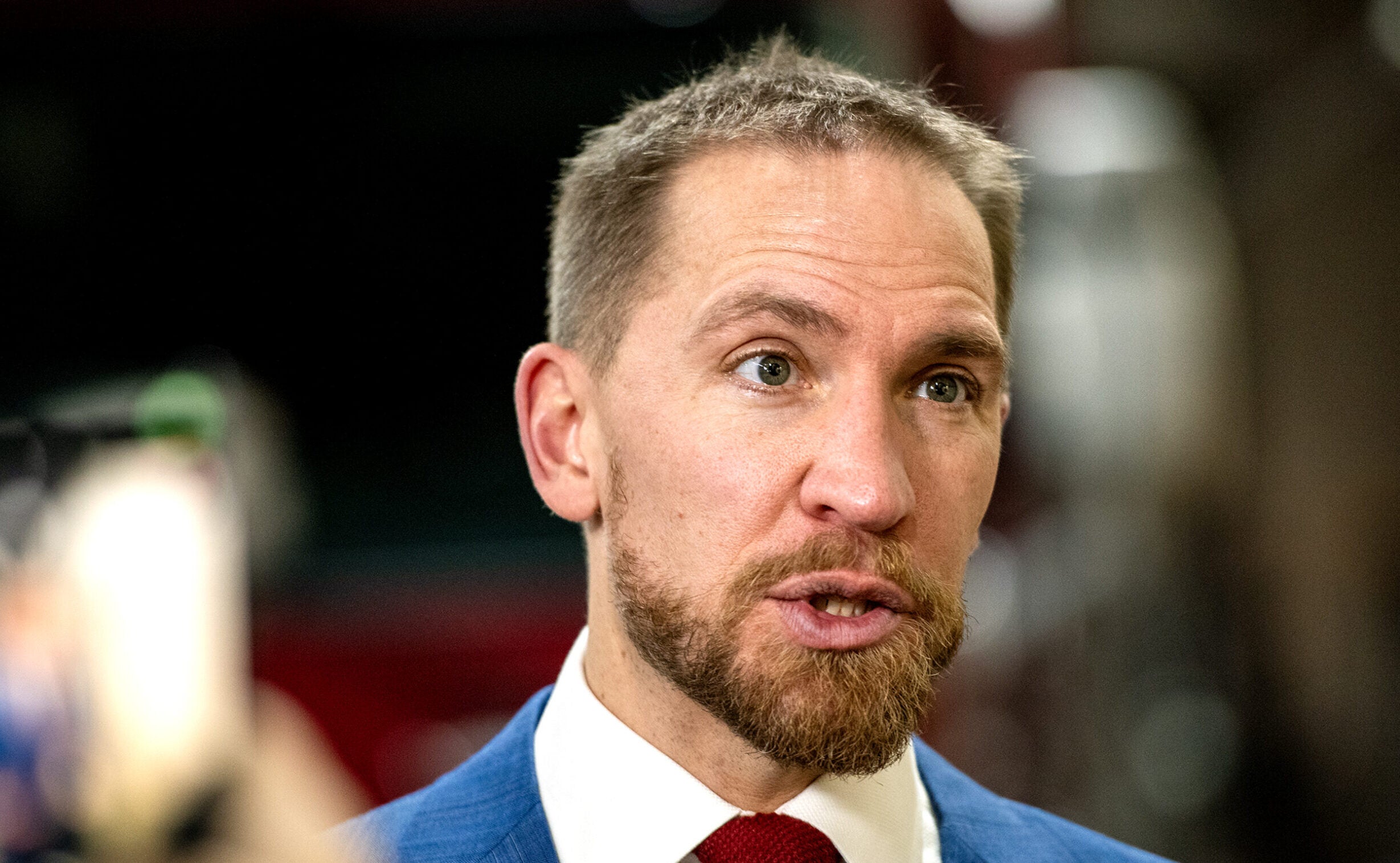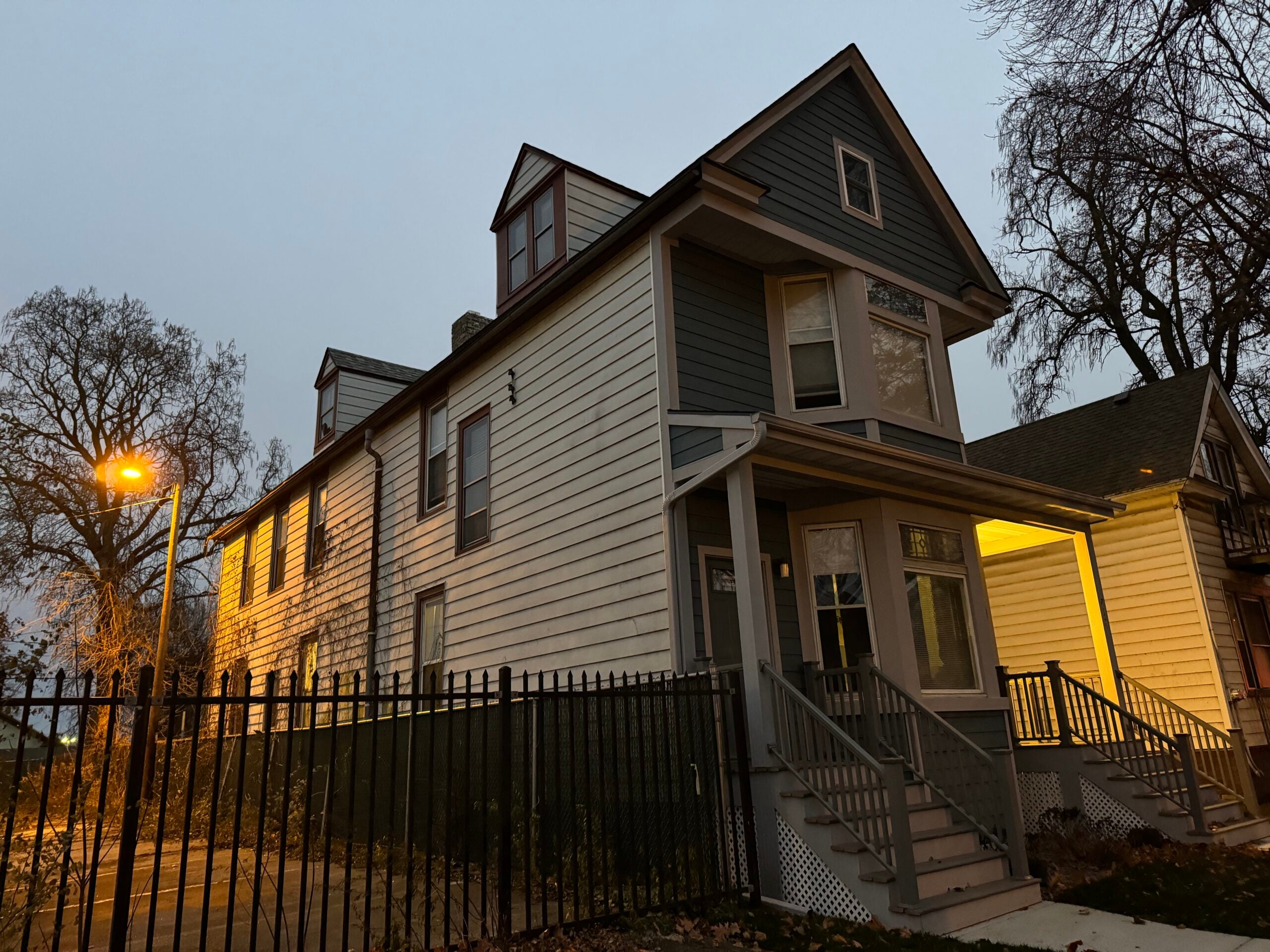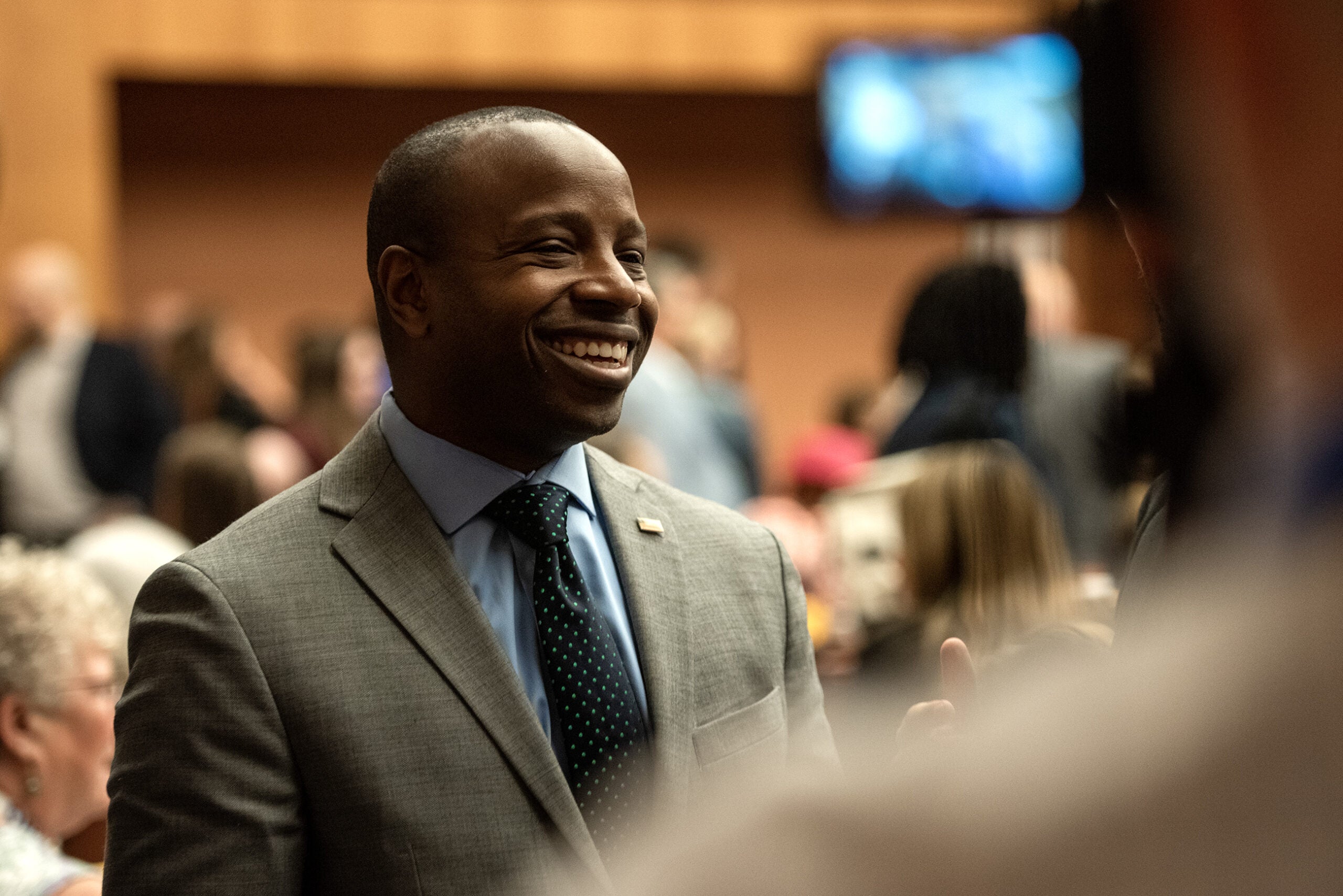The man serving as Milwaukee’s acting mayor said he wants to rebuild the city’s relationship with the state Legislature in order to get the city the funding it deserves.
Cavalier Johnson became the acting mayor Dec. 23. He is also still holding on to his role as president of the Milwaukee Common Council. In his role on the council, he represents District 2 — but only votes when there is a tie.
Seven candidates are running to lead Milwaukee and replace former Mayor Tom Barrett, who was first elected to the position in 2004 and left in December to serve as the U.S. ambassador to Luxembourg.
Stay informed on the latest news
Sign up for WPR’s email newsletter.
The primary election on Tuesday, Feb. 15, will determine which two top vote-getters will face off in the April 5 special election. The winner will finish out the last two years of Barrett’s term.
READ MORE: At swearing-in ceremony, Milwaukee Mayor Cavalier Johnson pledges to fight rising crime
Q&As from interviews with candidates that air on WPR’s “The Morning Show” will be published here. This story was edited for brevity and clarity.
Kate Archer Kent: What would be your top priorities as mayor?
Cavalier Johnson: The top priority in Milwaukee, bar none, is public safety. People around the city of Milwaukee are concerned about the rampant reckless driving that is gripping neighborhoods with concern and fear. That’s not right. That’s something that we ought to address, and that’s why I declared reckless driving a public crisis in my first day in office. They’re also concerned about the number of shootings that we have. There are too many people who have too easy access to firearms in the city of Milwaukee. We need to work with our partners in Madison to solve it.
Speaking of Madison, the next mayor of Milwaukee is going to have to repair the broken relationships with the Legislature. I’ve said time and again: I’m going to have a cot in the Capitol working to do just that, and I’ve already started. As a matter of fact, just last week, I was in the state Capitol meeting with legislators, repairing the relationship and working to move forward to bring additional resources to Milwaukee.
And then when you look at some of the issues that have happened in our neighborhoods across the city, folks who live here in our city don’t have access to true family support and jobs. If we’re going to really attack the issue of violence and crime and additionally poverty, we have to do it at the root level and that means connecting people with family support and work in our city.
KAK: Do you see a longtime broken relationship with the state Legislature is in some way holding back funds for Milwaukee?
CJ: I do, I do. Just think about our broken shared revenue system. I know this doesn’t only affect Milwaukee, but of all the municipalities in the state, it most acutely affects Milwaukee. And unless we’re able to repair the relationship with the state, we’re not going to be able to get additional funds, whether it’s shared revenue or some other grant funds into the city. We’re certainly not going to be able to have an additional taxing revenue source.
We don’t have a sales tax like other major cities do in the United States. We need to change that because this city is expected to host large conventions, be the cultural and the diversity center and the economic center. That means it puts a toll on city services. So, what we need is an opportunity to collect funds from folks who come into our city to benefit from those things. Basically, when you go to a restaurant and you get a service, you leave a tip. And Milwaukee is not getting its tip. We just kindly want our tips, so we could pay for our services.
KAK: What are you learning on the ground as you approach problems such as reckless driving and murders?
CJ: There are too many people in this city who should not have guns in the first place who have far too easy access to them. And this is not a conversation about the Second Amendment. This is not a conversation about taking people’s guns away. It’s a conversation about stopping people who would cause harm, death and destruction to our communities from having the tools to carry out that vision.
And again, it’s going to take a strong relationship with the Capitol, with the folks that control the Legislature in order to change the narrative on that in order to get a different response from them so that we can stop individuals who shouldn’t have access to those guns from using them. And just think about this year, it’s been extremely deadly. We’re currently outpacing homicides, most by gun, in 2022 than we did in the historical years of 2020 and 2021. That’s got to change.
KAK: The city has about $200 million in unallocated federal funding for responding to the pandemic. How should that money be used?
CJ: We’ll be working to invest that money, just like we did in the first tranche, to make sure that there is affordable housing available to people who live in the city of Milwaukee. We’ll be working to address issues around lead poisoning in the city of Milwaukee. We’ll be looking to make sure that businesses that have suffered the brunt from the downturn with the pandemic have the resources that they need to grow and to thrive. And we’ll be working to make sure that the folks who live in our city have access to new family support and job opportunities here in Milwaukee, as well.
KAK: How should Milwaukee support expanding affordable housing?
CJ: So, we know that there is a shortage of roughly 32,000-33,000 affordable housing units in the city of Milwaukee. Right, that’s known. And so, when we talk about housing, what you have is this: When I led the initiative to put together the funding package for the first tranche of American Rescue Plan Act funds, we invested the largest amount of money ever in Milwaukee — over $40 million — into our housing stock. This inventory of tax foreclosed properties that is in the city’s possession, that does the city government, and therefore the taxpayers and the residents in the city, no good because they’re off the tax roll … They’re a drain on our resources. And so that’s why we’re investing tens of millions of dollars to rehab those homes and to sell them at affordable houses, getting homeowners in there to help to stabilize neighborhoods in which those homes are in.
So, that’s one thing. Another thing that I think is critically important is that we look at ways to leverage city dollars with philanthropic dollars or private dollars to help folks in our city who want to become homeowners to attain that goal, to build the generational wealth and help to stabilize their neighborhoods as well.
Wisconsin Public Radio, © Copyright 2025, Board of Regents of the University of Wisconsin System and Wisconsin Educational Communications Board.
